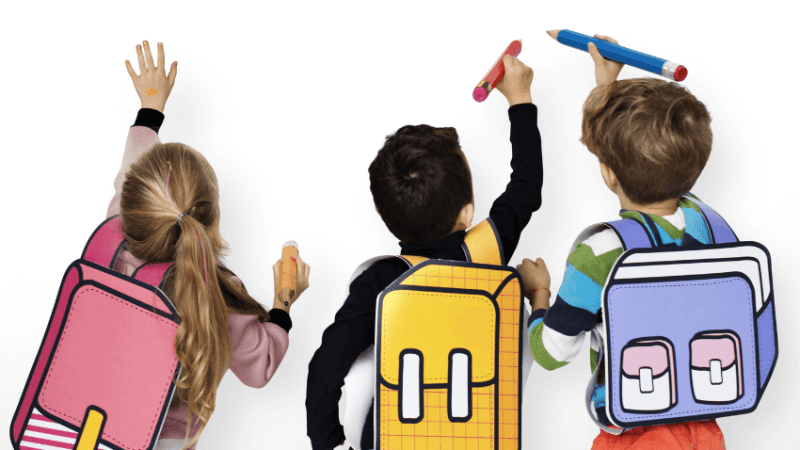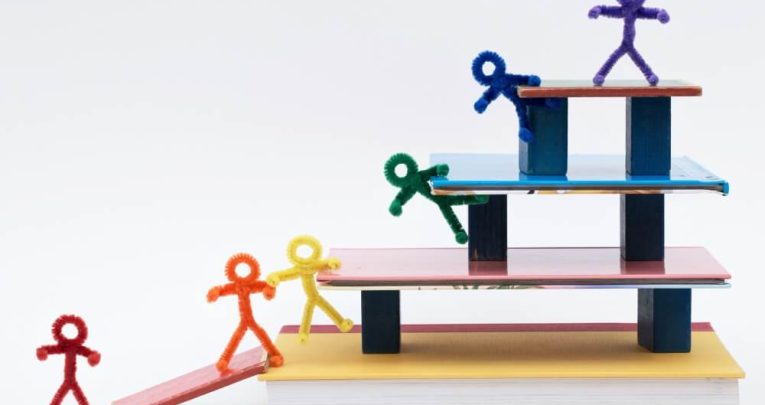World Environment Day – Great 2025 ideas and resources for primary schools

Go green this June 5th and help your pupils understand how to build a brighter future, and why we all should, with these activities, ideas and lesson plans for World Environment Day…

- by Teachwire
- Classroom expertise and free resources for teachers
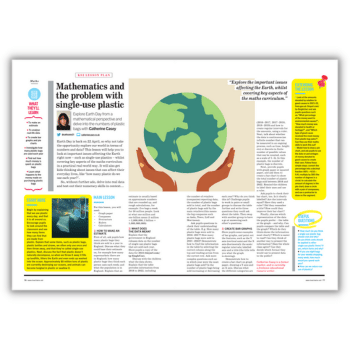
Table of contents
What is World Environment Day?
World Environment Day is a United Nations international day. It aims to bring together people across the world and put the spotlight on the key environmental issues of our times.
2023 marked the 50th anniversary of World Environment Day and the theme for 2025 is #BeatPlasticPollution.
When is World Environment Day 2025?
World Environment Day is on Thursday 5th June 2025. Find out how you can get involved by visiting the official World Environment Day website.
(We’ve also got resources for Earth Day, held in April, and World Ocean Day, held in June).
KS2 World Environment Day resources
World Environment Day KS2 maths lesson plan
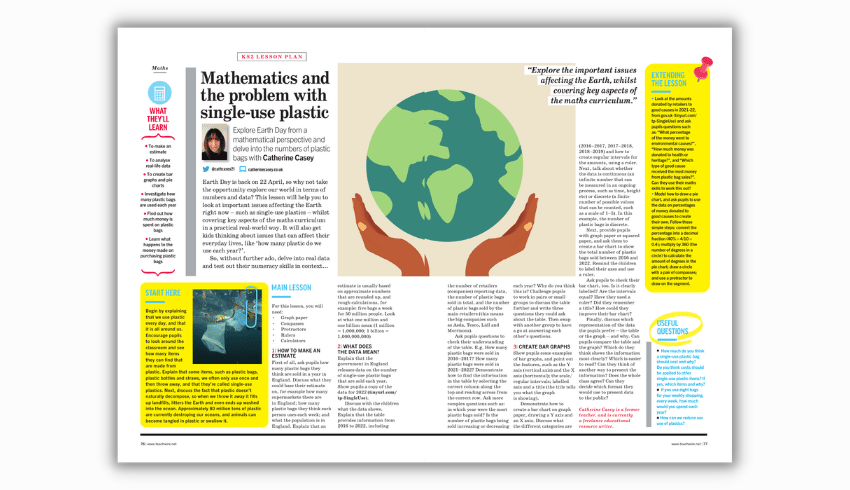
This free KS2 maths lesson plan investigates single-use plastics while also covering key aspects of the maths curriculum.
Pupils will learn to analyse real-life data, create bar graphs and pie charts and more.
Year 6 writing model text
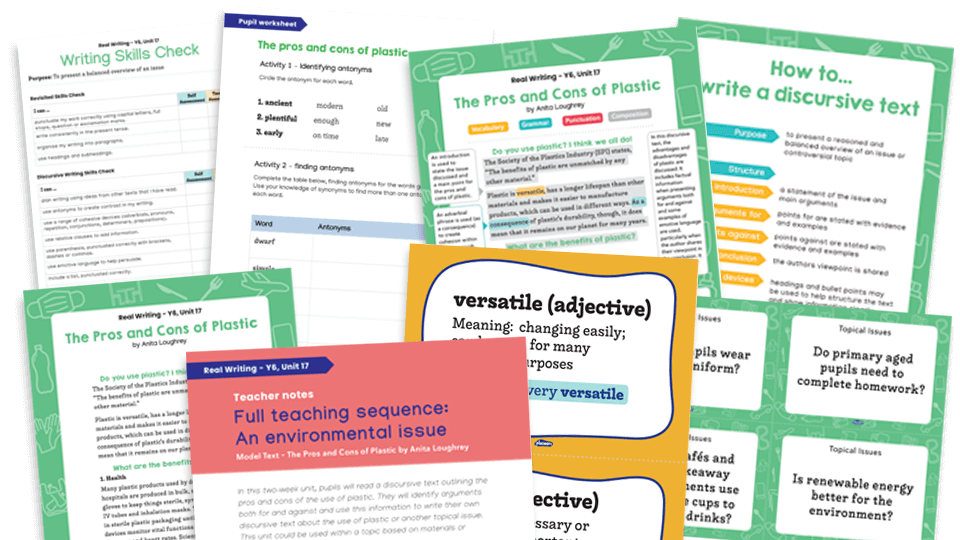
This two-lesson writing unit from Plazoom is based on an original model text by Anita Loughrey. Pupils can use it to identify arguments for and against the use of plastic, then write their own discursive text.
KS2 science resource for World Environment Day
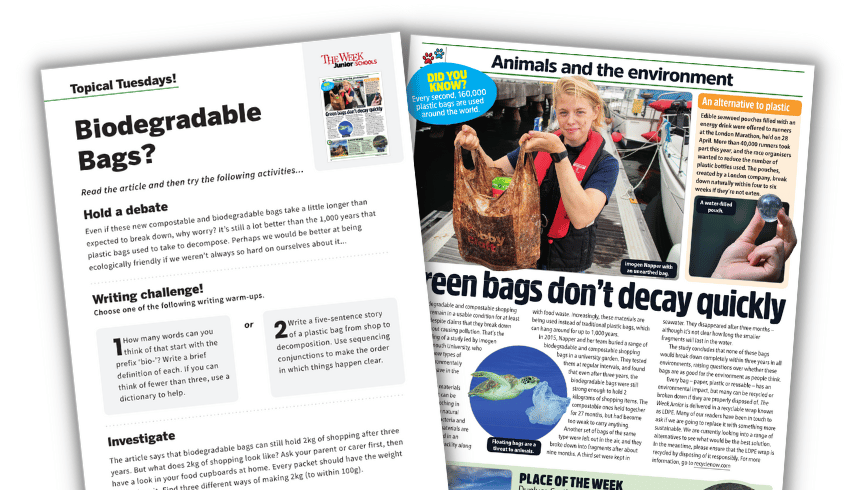
This free PDF resource includes an article from The Week Junior about plastic bags and their effect on animals and the environment. There are also accompanying activity ideas to try, including writing, debate and maths tasks.
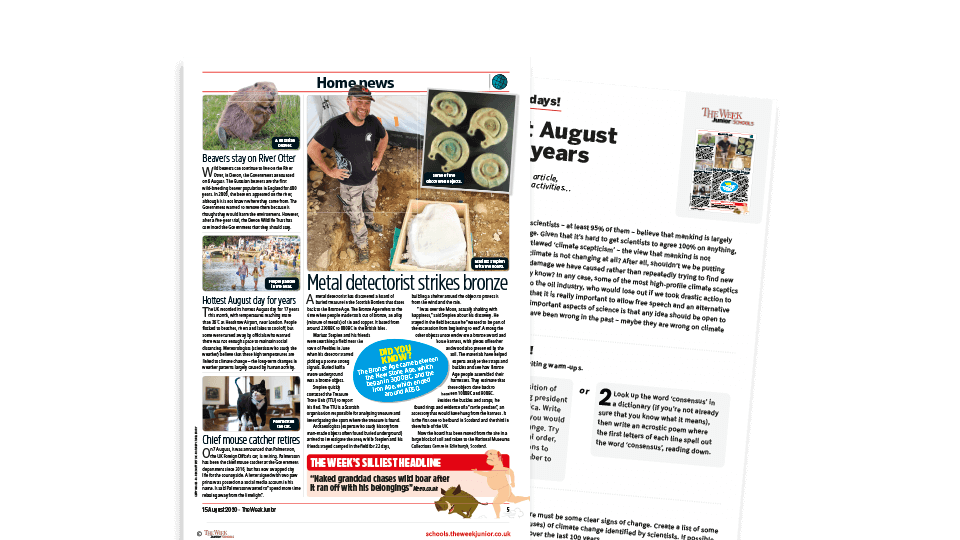
Find another free The Week Junior activity here, all about climate change.
Climate change activity pack
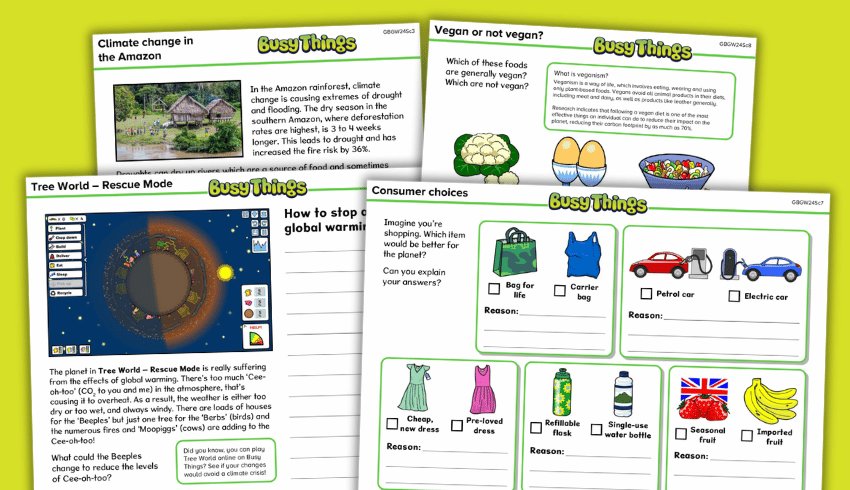
This free pack, developed for Great Big Green Week, offers engaging and practical ways to teach sustainability. It includes comprehension tasks on climate impacts, debates around coal use, sorting activities on consumer choices and diet, and imaginative writing to spark climate-conscious thinking.
Special events

Join Literacy Counts for a special, free World Environment Day event, alongside Let’s Grow. The engaging online event will take place on 5th June 2025 and will celebrate the environment and sustainability. Express your interest.
The 52 Lives charity is also hosting a special World Environment Day assembly that your class can get involved in, at both 9.30am and 1.30pm. Sign up here.
KS2 plastic pollution lesson plan
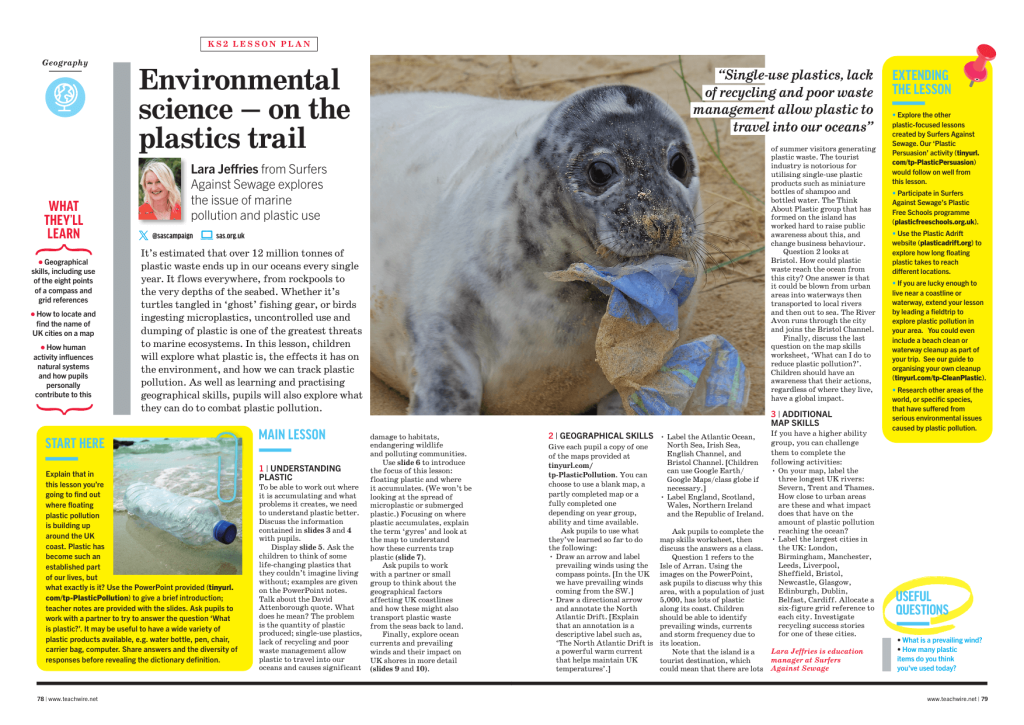
Use this free KS2 plastic pollution lesson plan to explore the issue of marine pollution and plastic use. Children will explore what plastic is, the effects it has on the environment, and how we can track plastic pollution.
KS2 recycling lesson plan
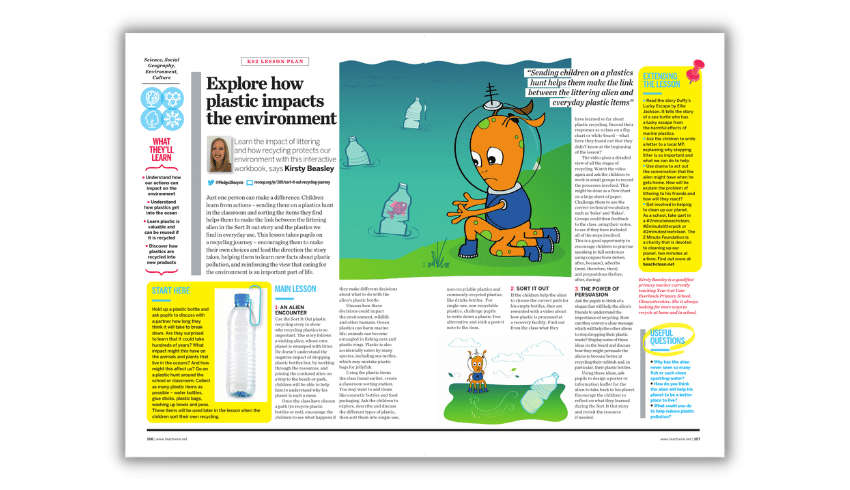
This free science and geography KS2 lesson plan encourages pupils to learn new facts about plastic pollution. It reinforces the view that caring for the environment is an important part of life.
Fashion and the environment lesson plan
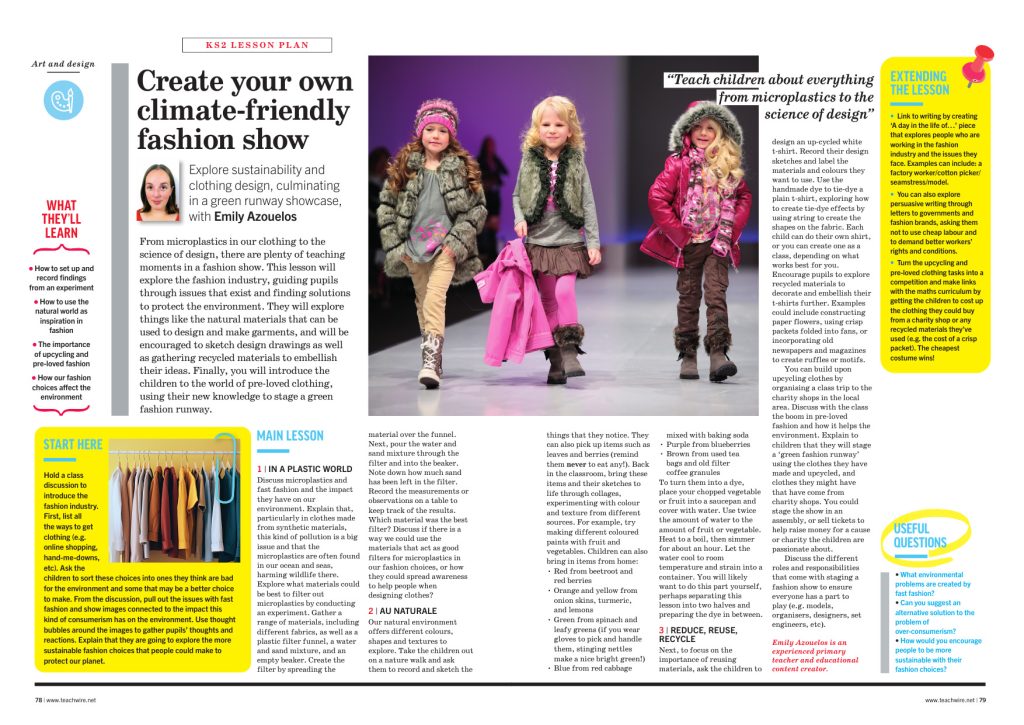
Explore the effect of fast fashion on the environment, sustainability and clothing design in this free art lesson plan that culminates in KS2 pupils putting on a green fashion show. Pupils will explore various environmental issues and find solutions to protect the environment.
Climate change assembly
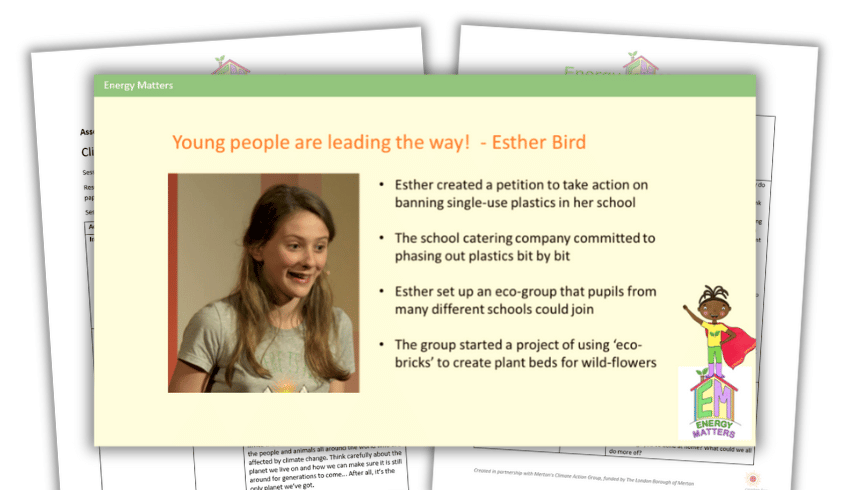
This climate change assembly from fuel poverty and climate charity, Centre for Sustainable Energy, takes about 30 minutes to deliver. It covers climate change, how it affects humans and animals and how young people can take action.
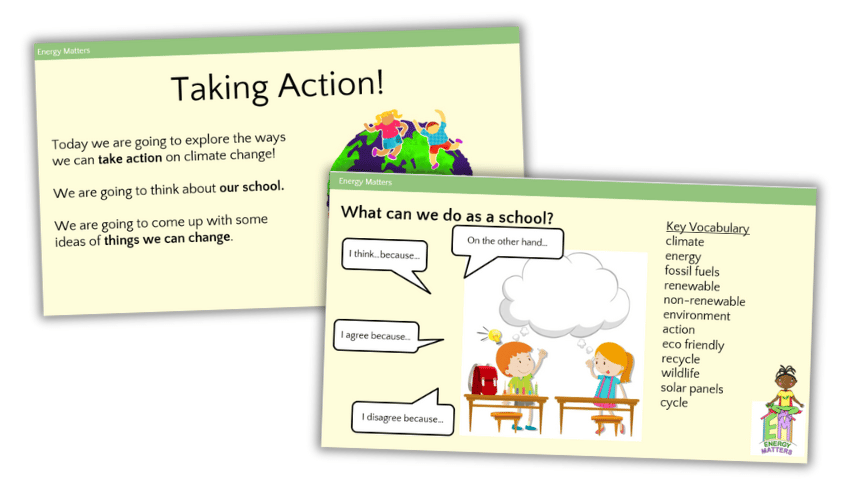
There are also free, adaptable climate change lesson resources from the Centre for Sustainable Energy that will help you teach this important subject in primary school.
October, October book topic
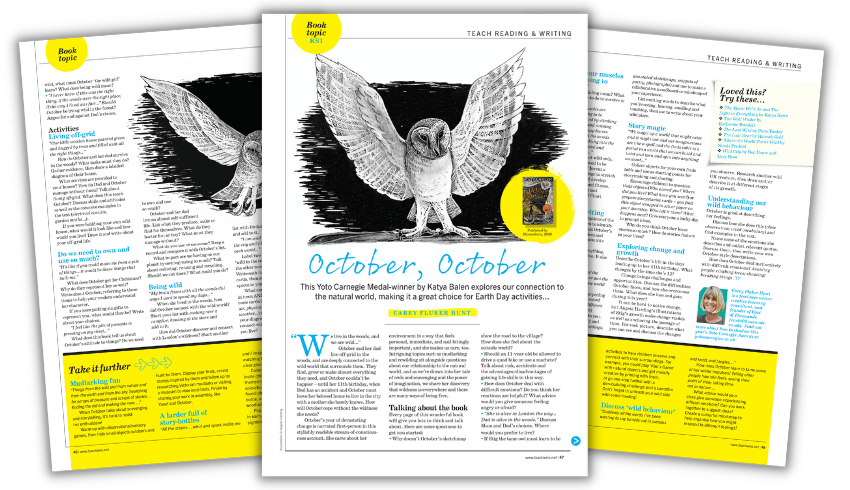
Use this free three-page PDF to explore the book October, October by Katya Balen in a cross-curricular way. The story focuses on our connection to the natural world, making it a great choice for World Environment Day.
KS2 RE medium-term plan
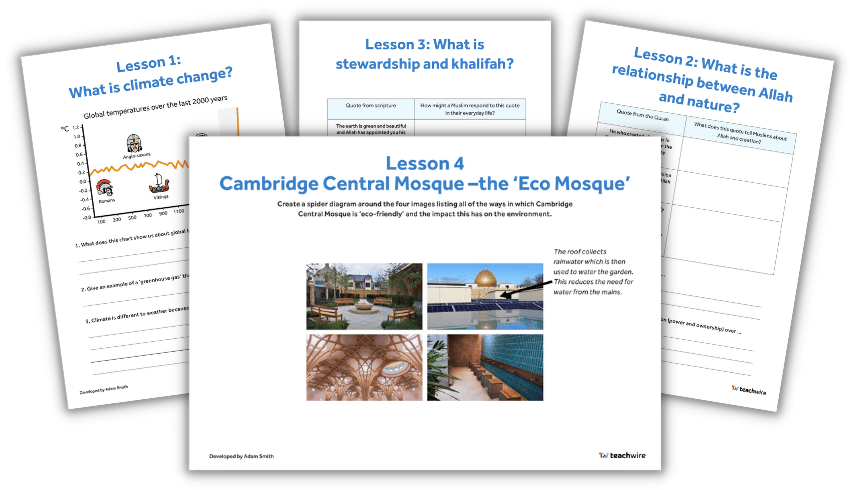
Science isn’t the only subject you can fit climate discussions into. This free RE medium-term plan for KS2 explores stewardship in Islam, how the Hajj pilgrimage is being affected by the climate and more.
Trending
Imaginary adventure to the Amazon lesson plan

Take an imaginary class trip to the jungle to study its unique environment, important weather patterns and environmental challenges. This free KS2 geography lesson plan will teach kids why the Amazon is so important and why it needs protecting.
Michael Morpurgo book topic

Use Judy Clark’s activity ideas to explore This Morning I Met a Whale – Morpurgo’s tale of a boy who spies a bottlenose whale in the Thames. There are loads of writing opportunities, from environmental information pamphlets to persuasive letters and news reports.
KS1 World Environment Day resources
KS1 renewable energy lesson plan

With a mixture of discussions and hands-on fun, use this KS1 climate change lesson to introduce children to the wonderful world of renewable energy.
The Lorax KS1 activities
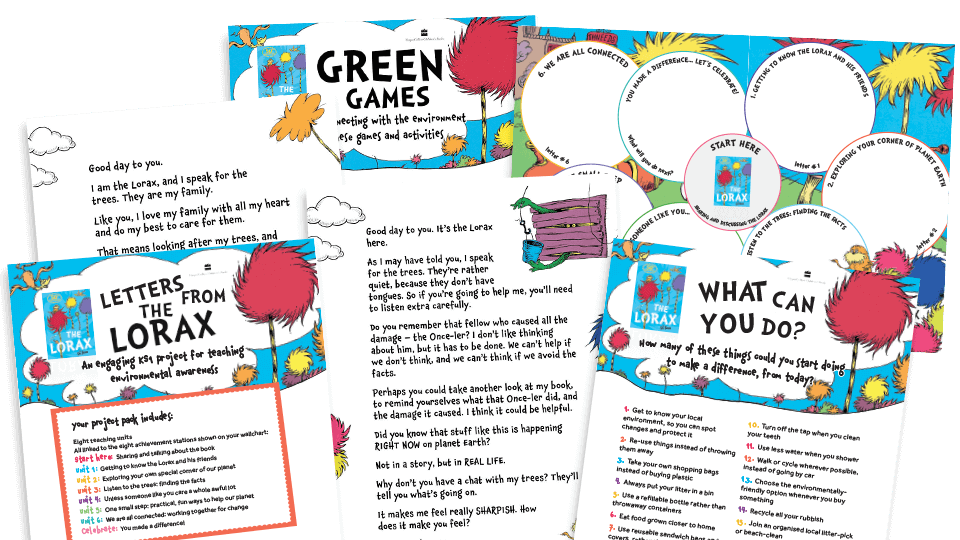
Use Dr Seuss’ timeless tale, The Lorax, to teach environmental awareness through a literacy lens in Key Stage 1. This free resource pack from literacy resources website Plazoom contains eight teaching units.
RSPCA bees, pollination and honey lesson
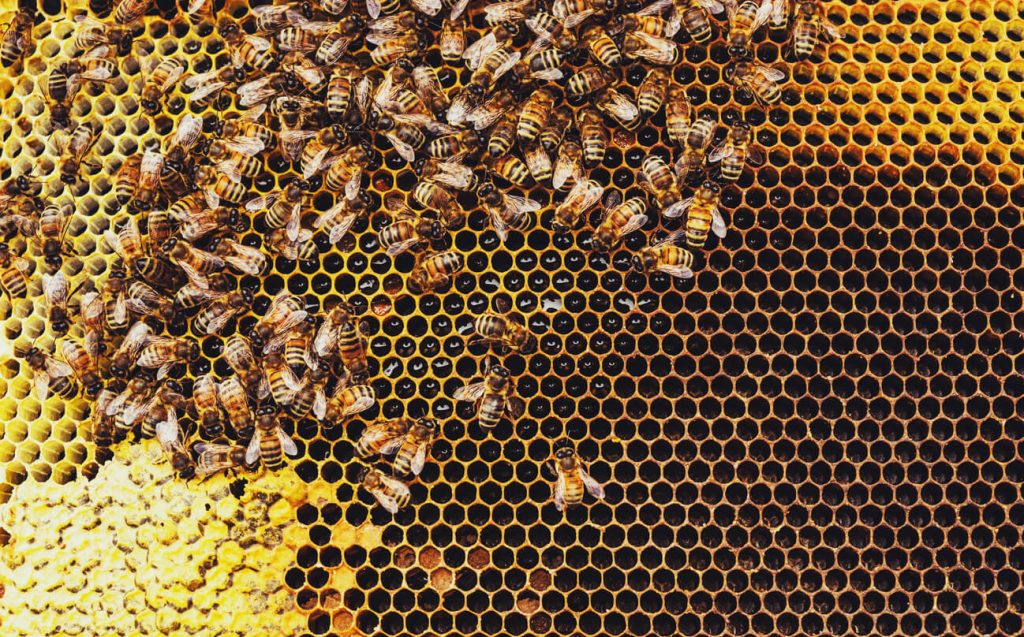
This free minibeasts lesson plan series from the RSPCA will get pupils thinking about different types of insects, our attitudes to them and the roles they play in the ecosystem.
One lesson focuses on bees to give an insight into the complexity of insect life and to explore the beneficial effect of bees on humans and the environment.
Build a mini rainforest shelter lesson plan
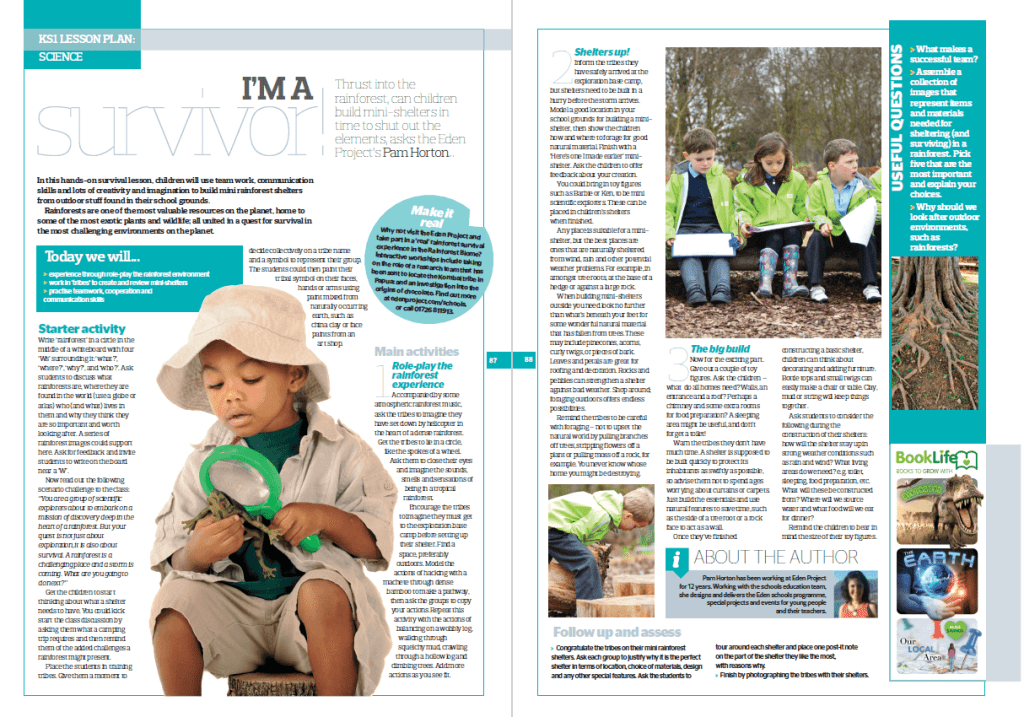
In this hands-on survival lesson for KS1, children will use teamwork, communication skills and lots of creativity and imagination to build mini rainforest shelters from outdoor stuff found in your school grounds.
Leaf book topic

Leaf by Sandra Dieckmann is a beautiful picture book with plenty of heart – but there’s bite here, too. Use these activity ideas to explore the threat of environmental imbalance with your KS1 pupils.
Wildlife and habitats RSPCA lesson

Encourage your young learners to explore the world around them, think about the impact humans have on wildlife and what we can do, as compassionate citizens, to protect them.
These free KS1 activities from the RSPCA introduce pupils to the effect that human actions can have on both animals and their environments.
More World Environment Day resources
Creative ways to reuse plastic bottles
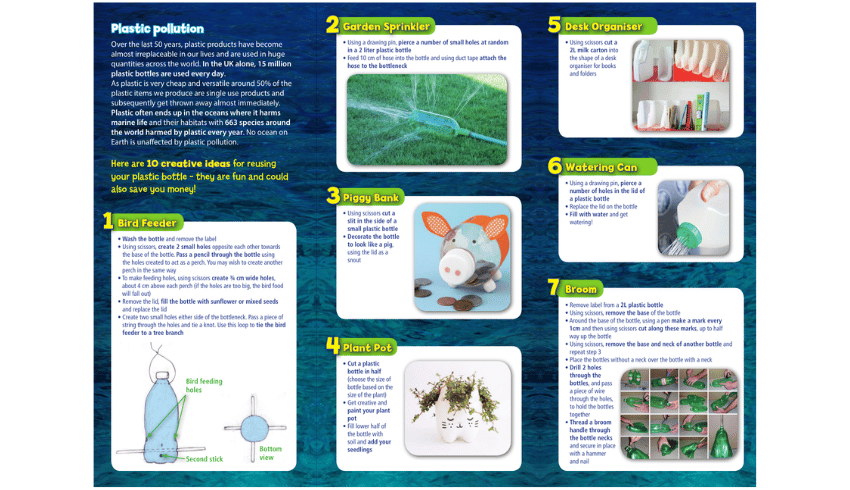
This free PDF from the charity Global Ocean features ten creative ways to reuse plastic bottles.
Also from Global Ocean, you can download a range of free marine conservation resources about plastic in the ocean.
Global warming resources for World Environment Day

If you want to focus specifically on global warming, check out our round-up of the best climate change for kids classroom resources.
‘Earth’ acrostic poem printout
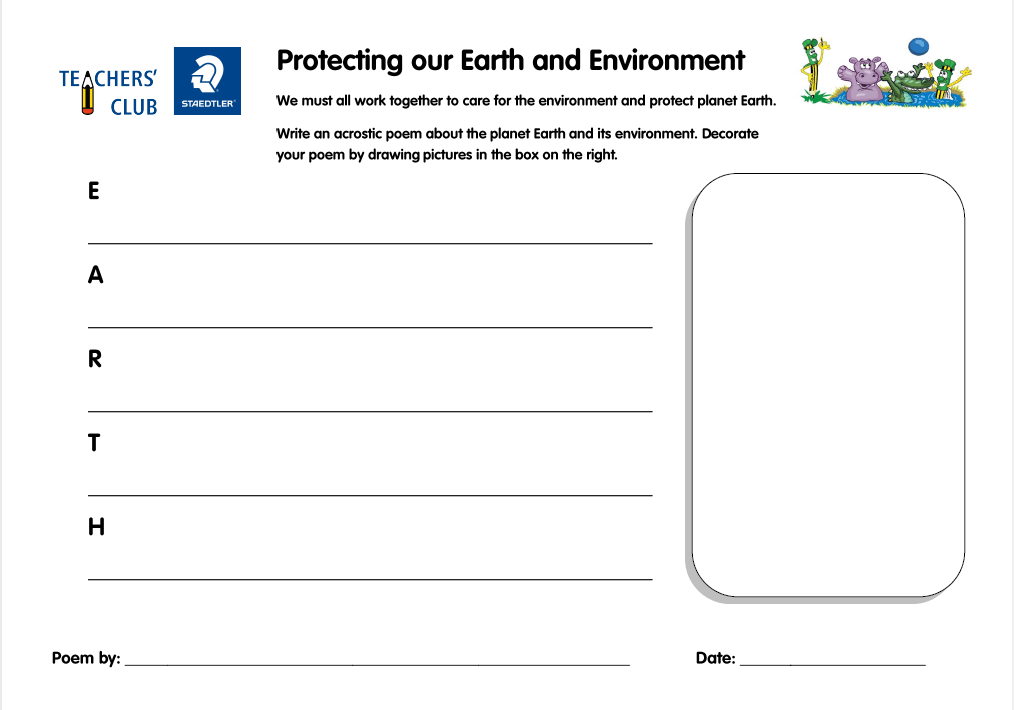
This printable worksheet tasks students with writing an acrostic poem using the word ‘Earth’, all about our planet, and why it’s important to look after it.
There’s also space for children to draw illustrations to accompany their poems.
Persuasive recycling poster
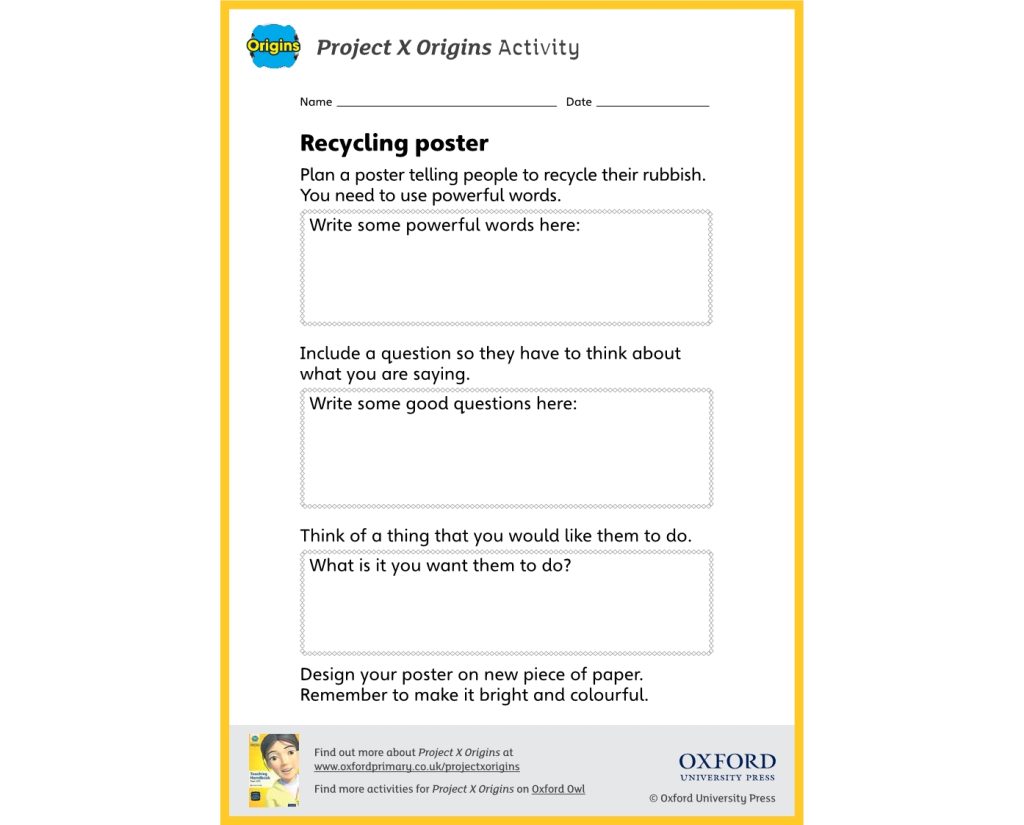
This worksheet with writing prompts, taken from the OUP primary literacy resource series Project X Origins, is designed to help pupils create a persuasive poster promoting the benefits of recycling.
Environment and sustainability lessons

The YPTE (Young People’s Trust for the Environment) has a selection of lessons covering plants, animals, fairtrade, food miles, seashores and more.







